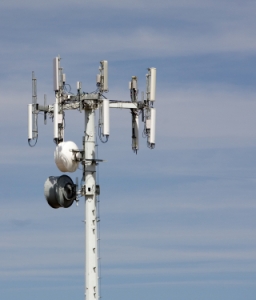Wiretap Laws and Telephone Mystery Shops
Overview
 Both federal and state statutes govern the use of telephone mystery shopping.
Both federal and state statutes govern the use of telephone mystery shopping.
The Federal Wiretap and Electronic Communications Privacy Acts (ECPA) prohibit the (1) intentional, (2) interception, (3) of the contents of a communication, (4) whether by wire, oral or electronic communication, (5) by use of electronic, mechanical or other device. But, these statutes contain a one-party consent exception permitting interception so long as not done for a criminal or tortious purpose.
The Federal Stored Communications Act prohibits the (1) disclosure, (2) of the contents of any wire, oral or electronic communication, (3) with knowledge of their illegal interception. However, these statues have essentially the same exception as the Wiretap Act (allowing communications to be divulged with the consent of one of the communicators).
A majority of the states have adopted wiretapping statutes based on the federal law (38 states and DC are “one-party consent jurisdictions). Though twelve states require the consent of all parties (CA, CT, FL, IL, MD, MA, MI, MT, NV, NH, PA and WA), Ohio is a one party consent jurisdiction.
Ohio Law
“An individual who is a party to either an in-person conversation or electronic communication, or who has the consent of one of the parties to the communication, can lawfully record it or disclose its contents, unless the person is doing so for the purpose of committing a criminal or tortious act.” (ORC § 2933.52)
Ohio is a one-party consent jurisdiction and the above statute covers intrastate (within Ohio – caller to recipient) mystery shopping.
Federal Law
The Wiretap Act and ECPA prohibitions are found at 18 USC §2510 et. seq. and 18 USC §2701 et. seq. These statutes have together, as their dual purpose: (1) protecting the privacy of wire and oral communications, and (2) delineating on a uniform basis the circumstance and conditions under which the interception and access of wire and oral communications may be authorized. (See prior discussion for the required elements of criminal or civil causes of action based thereon.)
There are multiple exceptions to the recording and use prohibitions. “Congress, in its wisdom, chose to insert a myriad of exceptions and restrictive definitions into [the Wiretap Act], purposefully leaving certain wire communications unprotected.” Griggs-Ryan v. Smith, 904 F.2d 112, 116 (1st Cir. 1990).
The most important, relied-upon, and cited exceptions are 18 USC §2511(2)(d)
“It shall not be unlawful under this chapter for a person not acting under color of law to intercept a wire, oral, or electronic communication where such person is a party to the communication or where one of the parties to the communication has given prior consent……”
and 18 USC §2702(b)(3).
“A person or entity may divulge the contents of a communication-……. (3) with the lawful consent of the originator or an addressee or intended recipient of such communication….”
In general, these provisions authorize the interception / use of communications when one party thereto consents to the interception – i.e. if a private person records her own telephone conversation with others, her consent provides appropriate authority so long as crime or tort isn’t a determining factor in her motivation. See, U.S. v. Cassiere, 4 F.3d 1006, 1021 (1st Cir. 1993).
The one-party consent exception is construed broadly and includes implied consent. See, Gilday v. Dubois, 124 F.3d 277, 297 (1st. Cir. 1997); U.S. v. Ammen, 831 F.2d 373, 378 (2nd Cir. 1987). And, if a covered communication is intercepted with valid one-party consent, the Wiretap Act does not restrict subsequent use or disclosure. See, In Re High Fructose Corn Syrup Antitrust Litigation, 216 F.3d621, 624 (7th Cir. 2000).
Thus, Federal law allows recording of phone calls and other electronic communications with the consent of at least one party to the communication. These exceptions cover interstate (from Ohio to other states) mystery shopping.
Canada Law
Canadian law similarly prohibits the interception of private communications.
“Every one who, by means of any electro-magnetic, acoustic, mechanical or other device, wilfully intercepts a private communication is guilty of an indictable offence…….”
But, again, its code contains a clear one-party consent exception.
“[The above prohibition] does not apply to a person who has the consent to intercept, express or implied, of the originator of the private communication or of the person intended by the originator thereof to receive it;”
See Criminal Code, R.S.C. 1985, c. C-46 at §184(1) and (2)(a)
Conflict of Laws
Minimum contacts may subject a mystery shopper to the personal jurisdiction of foreign states or countries. However, the legal principles related to forum shopping, “gotcha” situations, statutory construction, plain intent and preemption are fairly established and should be defended.




